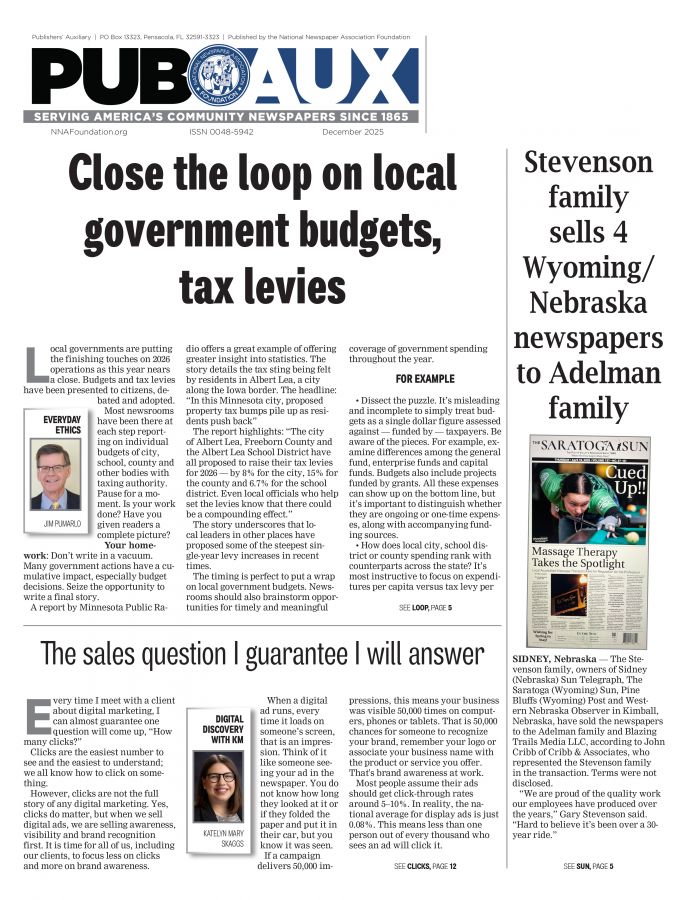Trump presidency promises big things
Dec 7, 2016
By Al Cross
Into the Issues
Rural votes played a big role in Donald Trump’s victory, and he plans some big changes that will have a big impact in rural communities.
Extractive industries do most of their extracting in rural areas, and Trump promised “to topple just about every major energy and environment policy enacted in the past eight years,” Robin Bravender reported for Environment & Energy News, in a story that we excerpted on The Rural Blog at bit.ly/2fP90FA.
The Obama administration policies most likely to be reversed are the Environmental Protection Agency’s redefinition of “waters of the United States” in the Clean Water Act, strongly opposed by farm interests, and the regulations to limit carbon-dioxide emissions from coal-fired power plants.
But there is little that Trump can do to bring back power-plant markets that coal has lost to cheap natural gas, experts said in an earlier blog item, at bit.ly/2ezTu34. In it, Senate Majority Leader Mitch McConnell of Kentucky, the No. 3 coal state, said it is “hard to tell” whether a reversal of President Obama’s policies will bring back the industry. Trump hasn’t said exactly how he would help coal, we noted at bit.ly/2eZkRlP, an item that also noted his support of oil pipelines.
While Trump’s opposition to the water rule cemented his support among farmers, they worry about his opposition to trade agreements, which help U.S. agricultural exports and crop prices. Philip Brasher of the Agri-Pulse newsletter did a story the day after the election, and we excerpted it at bit.ly/2gc04x7.
Farmers are also worried about Trump’s stand on illegal immigration. Ironically, his election drove down the price of the Mexican peso from 6 cents to less than 5 cents, which could lead to more illegal immigration from the country, Bloomberg News reported. We excerpted it at bit.ly/2gbYVpA.
Trump held rural rallies to spur turnout, a strategy that supposed experts questioned but proved to be a sort of an organic turnout operation, as I told Patrik Jonsson of The Christian Science Monitor the day after the election. We excerpted his story at bit.ly/2g9Vqkf. Our day-after rural roundup of the election results is at bit.ly/2eZs7y3.
Katherine Cramer, a political-science professor at the University of Wisconsin, became a leading interpreter of Trump’s rural base because of her 2015 book, “The Politics of Resentment,” based on a long series of interviews with people in 27 Badger State communities. The Washington Post wrote her up, and then she did her own piece for the Post. We excerpted both, respectively, at bit.ly/2gcj8wh and bit.ly/2g9PcAA.
Cramer wrote that rural people in Wisconsin resent the political and economic dominance of Milwaukee and the capital of Madison, and their attitudes toward rural people. “They perceived that city folks called people like them ignorant racists who could not figure out their own interests,” she wrote. “To them, urban types just did not get small-town life—what people in those places value, the way they live, and the challenges they face.”
The Rural Blog is mainly aggregation, but we do the occasional story, as we did the Sunday after the election when Chuck Todd of NBC News featured comments from a leading farm-policy journalist on “Meet the Press.” Chris Clayton of DTN/The Progressive Farmer said in an MSNBC interview with Todd and others that Trump’s big rural margin may have been bolstered by resentment at repeated references in the news media to Trump’s popularity among both rural and lesser-educated voters.
“Rural America is not uneducated, even though maybe there are fewer people with college degrees than there might be in the metropolitan areas,” Clayton said, and his remarks stung Todd and New York Times columnist David Brooks.
Brooks said, “People with college degrees voted very differently than people with high-school degrees, but when you say it, when you actually don’t have a college degree, you hear, ‘Oh, they think I’m stupid.’ I’m guilty of that because I use that shorthand, too. And you saw so much sense of moral injury when you went around the Trump world.” Read our blog item at bit.ly/2g9Kv9V.
The highly unusual election prompted more than the usual editorial commentary in rural newspapers, and we picked up some of it on The Rural Blog. You can read examples from both sides at bit.ly/2fP3CTe and bit.ly/2ezYl4c.
I, for one, am glad the election is over and we can get back to more normal coverage. If you do or see stories that are relevant across rural areas, please send them to me at al.cross@uky.edu.
Al Cross edited and managed weekly newspapers before spending 26 years at The (Louisville) Courier-Journal and serving as president of the Society of Professional Journalists. Since 2004 he has been director of the Institute for Rural Journalism and Community Issues, based at the University of Kentucky. See www.RuralJournalism.org.






